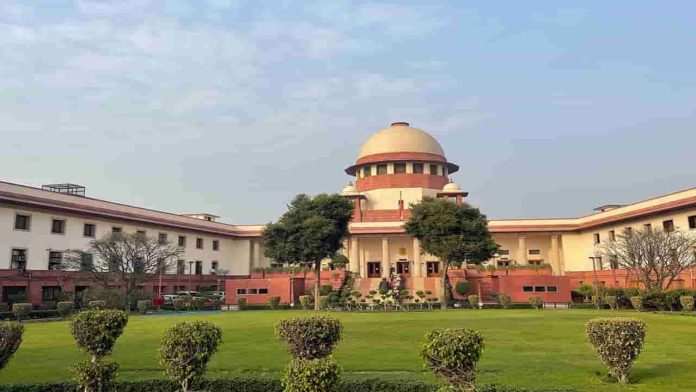In a PIL seeking life-time ban on convicted politicians, Amicus Curiae Vijay Hansaria has told the court that as per information received from 16 High Courts, about 962 cases pertaining to MPs/MLAs are pending for a period in excess of 5 years.
In his report, the amicus mentioned that Uttar Pradesh, Rajasthan, Bihar, Telangana are yet to file their affidavits.
He added that the High Courts in Chhattisgarh, Himachal Pradesh, Meghalaya, Sikkim UT of Jammu and Kashmir and Ladakh have also not filed affidavits in this regard.
On the last date of hearing (10.10.2022) the Apex Court had asked all the High Courts for filing an affidavit talking about the pendency of cases pertaining to MPs/MLAs pending for a period in excess of 5 years.
The petition was filed by advocate Ashwini Upadhyay, seeking expeditious disposal of against MPs and MLAs pending investigation and/or trial in various Courts.
The Court has time to time passed a series of orders for creating Special Courts to try the cases against sitting and former MPs/MLAs.
The maximum number of cases are in Orissa, followed by Maharashtra with 169 cases. In the rest of the States, the number of criminal cases against MPs/MLAs pending for over 5 years are either in double-digits or single digit.
Some states like Nagaland, Mizoram, Tripura, Andaman and Nicobar, Dadar and and Nagar Haveli do not have a single criminal case pertaining to MPs/MLAs pending beyond 5 years.
Chandigarh, Arunachal Pradesh and Manipur have one such case pending for over 5 years.
As per the affidavit filed by the Amicus, data regarding the total number of pending cases are 4,984, cases pending for more than five years are about 1899. Cases pending between two to five years are 1,475, Cases pending for less than two years are 1,599 and finally Disposal of cases after 04.10.2018 are 2,775.
Considering the pendency of more than 5 years, the amicus curiae has requested the Court to:
1. The Courts dealing with cases against MPs/MLAs shall exclusively on a day to day basis in terms of Section 309 of CrPC
2. Allow no adjournment except under exceptional circumstances.
3. Prosecution and defence ought to co-operate.
4. Two Special Public Prosecutors to be appointed in the Special Courts. If the Public Prosecutor cannot contribute, letter to be be sent to the Chief Secretary of the State.
5. If the accused delays the process their bail shall be cancelled.
6. Special Courts will give priority to the trial of cases in the following order: i. Offences punishable with death/ life imprisonment; ii. Offences punishable with imprisonment for 7 years or more;
7. Cases involving sitting legislators to be given priority .
8. Forensic laboratories will give priority in furnishing the report in respect of cases being tried by the Special Courts .
9. Courts will use technology of video conferencing for examination of witnesses and appearance of the accused persons, to the extent possible.
10. The trial courts shall ensure that the benefit of the Witness Protection Scheme 2018 has been made available to the witnesses in terms of the order.


